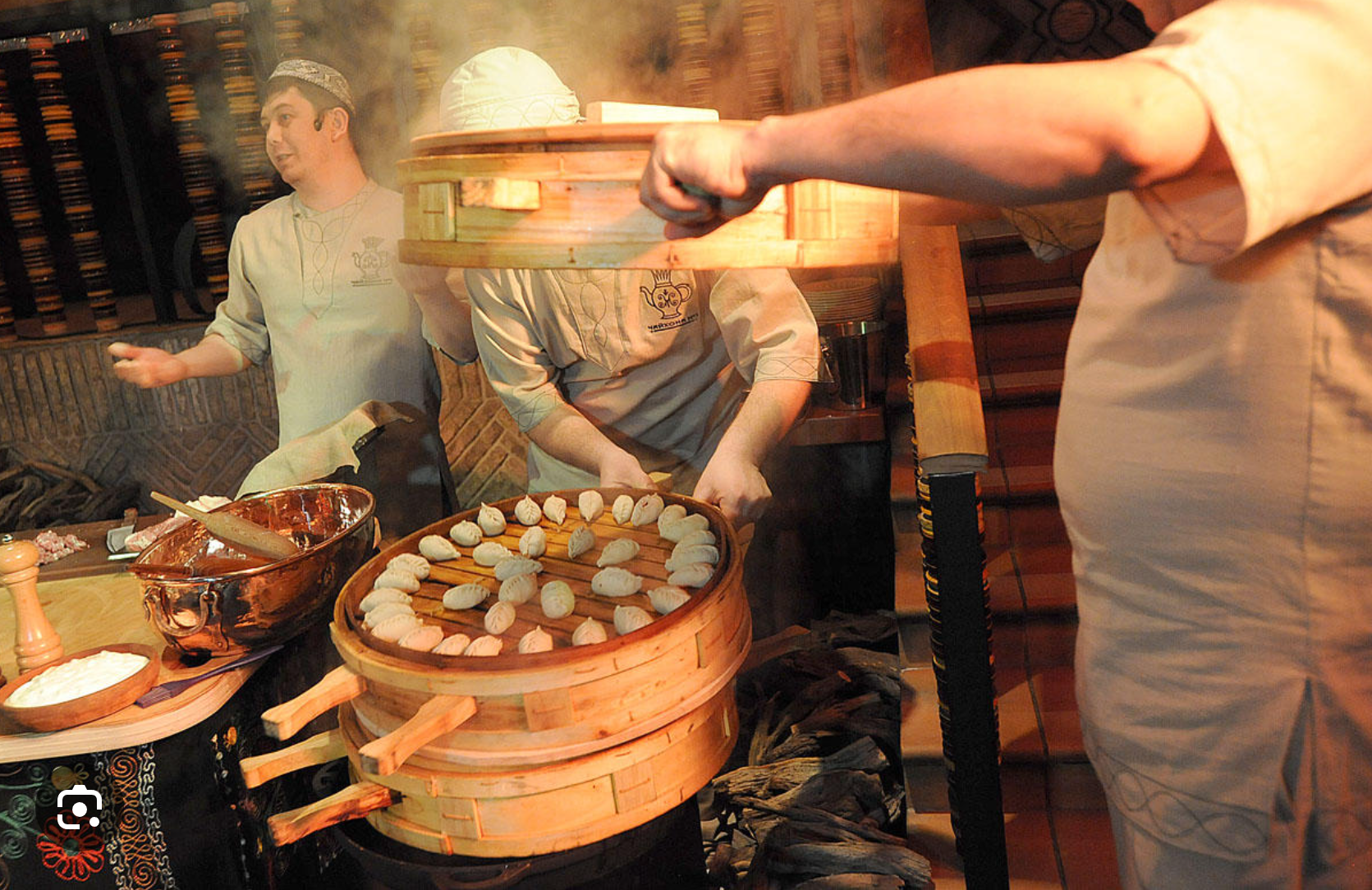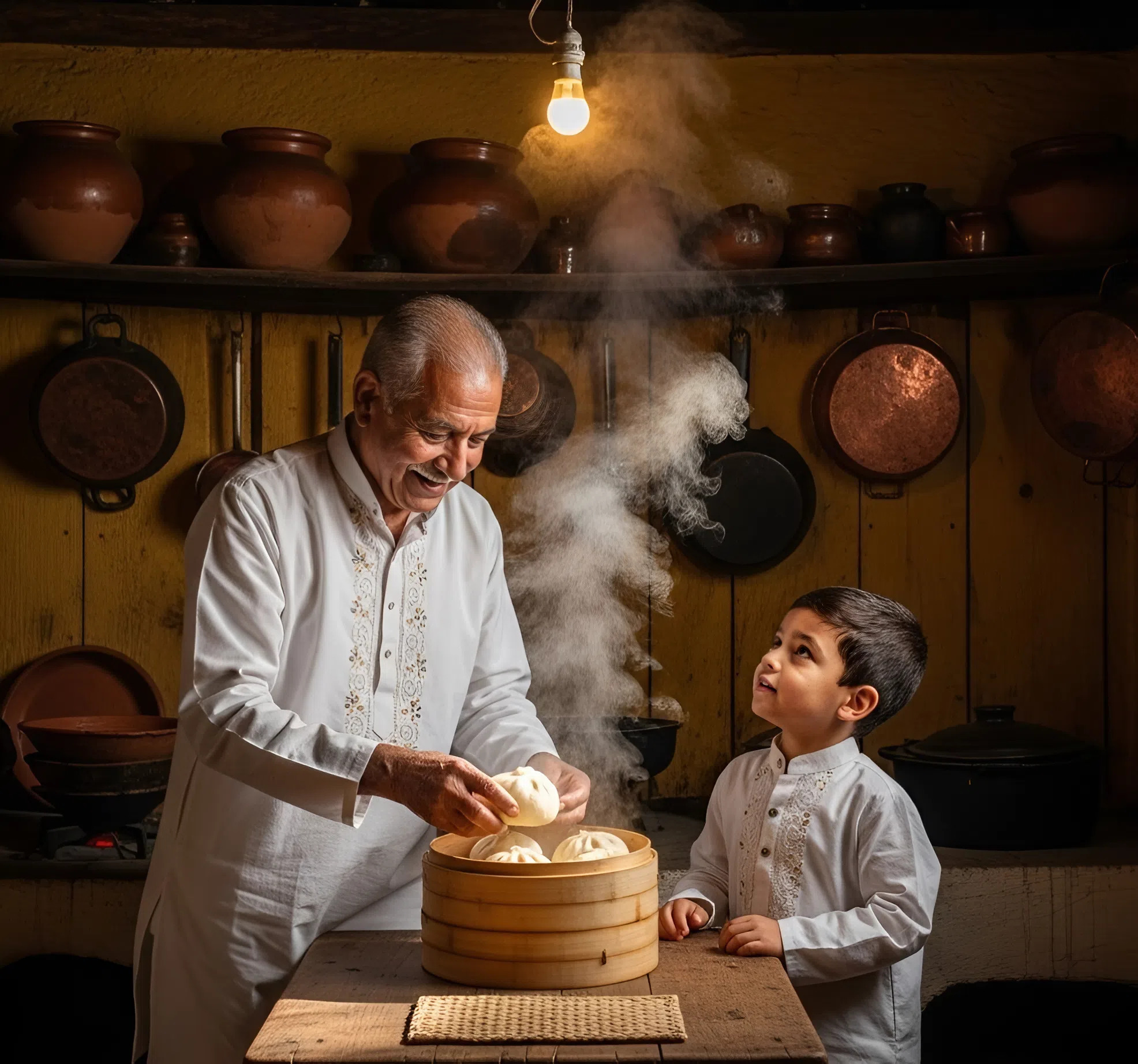At the beginning of an old street in Jaipur, there was a small bakery where people would queue up in the mornings before going to work. Mr Sharma, a sixty-year-old man, had a stubborn yet calm nature, but he was especially valued for his talent for baking hot and fragrant buns.
Eleven years ago, on a winter morning, as Mr Sharma was placing a tray of freshly baked buns on the counter, he suddenly noticed a schoolboy in torn clothes and worn-out shoes standing at the door. His eyes showed both curiosity and anxiety. When Sharma turned around, the boy quickly grabbed a bun and ran away.

The next day, the scene repeated itself. Every morning, the schoolboy waited for the moment when the owner was distracted and quietly took a bun. At first, Sharma frowned, but then he sighed heavily. He noticed the boy’s thinness, his hungry eyes and trembling hands.
‘Let him eat. Maybe he has nothing else in his stomach…’ he thought to himself.
So, day after day, month after month, throughout all three years of secondary school, the boy continued to come to the bakery. Sharma pretended not to notice, but deep down he knew everything. Sometimes he even baked more buns and left a few on the edge of the table to make it easier for the boy to take them.
One day, during a heavy downpour, he saw him huddled under a canopy, still waiting for the right moment to take a bun. Sharma’s heart sank. ‘This boy… He must be from a very poor family.’ He wanted to call him over and give him the bun, but stopped himself. Perhaps his youthful pride would not allow him to openly accept charity.
And then one day the boy disappeared. For months, Sharma did not see his familiar face. He felt both relief and sadness. He thought, ‘He must have finished school and moved away somewhere. May his life be easier.’
Time passed. The shop was still full of customers. Sharma grew old, his hair turned grey, but the memory of that boy sometimes returned.

One evening, when he was about to close the shop, the postman approached and handed him a large parcel from abroad. Sharma was surprised — he had no relatives abroad. The envelope read:
‘To: Mr Sharma — owner of the bakery at the end of the street, Jaipur.’
He opened it. Inside was a luxurious wooden box, a handwritten letter, and… a neatly tied bundle of banknotes. With trembling hands, he unfolded the letter:
Dear Mr Sharma,
I am the student who used to steal your buns in silence. I know you saw everything, but you never scolded me or kicked me out. For a poor child with a strong sense of dignity, your silence and patience meant more than a thousand words of help.
Thanks to those buns, I was able to continue going to school. I graduated from secondary school, received a scholarship, and went abroad to study. Eleven years have passed. Now I am an engineer, living in another country and standing on my own two feet.
I am sending you part of my savings — not to ‘return the buns,’ but to thank you, albeit belatedly. Each bun not only filled a hungry stomach, but also preserved the faith and dignity of a child.
I hope you will accept this as the fulfilment of my life principle.
Yours sincerely,
Rahul Mehta.
Mr Sharma remained silent. His old eyes filled with tears. The image of that skinny boy hiding a bun in his shirt pocket came back to him as if it were yesterday.
He pressed the letter to his chest and whispered:
‘The boy… he made it… Thank God.’

On the day the story became known, the whole bakery came alive. Some regular customers were moved, others cried. Everyone looked at Mr Sharma with respect and admiration.
He just smiled gently:
‘It’s nothing special. I just did what I had to do. We all need a little patience to live.’
Since then, the story of the schoolboy and the buns has spread throughout Jaipur. People came not only to eat, but also to hear this beautiful story — proof that a small, quiet act can change someone’s destiny.
After receiving the parcel, Sharma continued to open his shop as usual. But from then on, he often sat for a long time at the entrance, looking at the street where the thin boy had once quietly run away.
One autumn morning, as he was drinking tea after serving customers, he heard a voice with an unfamiliar Hindi accent:
‘Uncle Sharma!’
He looked up. Standing before him was a young man of about thirty, dressed in a simple white shirt, carrying a suitcase, his face lit up and his eyes moist.
‘Rahul… is that you?’ he asked in a trembling voice.

The young man nodded, ran up, bowed to touch his feet, as tradition dictates, and hugged him tightly.
‘Uncle… I’m back. I wanted to thank you in person.’
Sharma froze in the warm embrace. The image of a weak boy now stood before him in the guise of a confident man.
The customers fell silent, then burst into applause.
Rahul said that he had finished his studies in England and had now returned to work on a road and bridge construction project in Rajasthan. Before starting, he wanted to find the very bakery that had fed him in his youth.
He took a fresh bun, took a bite and smiled:
‘The taste is still the same, uncle. The taste of patience.’
Sharma’s eyes filled with tears again. He put his hand on his shoulder and said:
“You’ve come a long way, you’ve become successful. I don’t need anything but your happiness.”
Rahul stayed in the shop for a long time, talking about the difficult path, the sleepless nights made possible only by those buns, and his determination to escape poverty — so as not to disappoint Uncle Sharma’s kind heart.

As he said goodbye, he whispered:
‘Uncle, from this day forward, this shop is my home too. I’ll be back — not to steal buns, but to eat them with you, as family.’
Sharma nodded with a slight smile on his wrinkled face. The old man and the young man, the past and the present, were united in one embrace.
From that day on, the little bakery on the street in Jaipur ceased to be just a place to eat — it became a living story of how a patient heart can change someone’s destiny.

